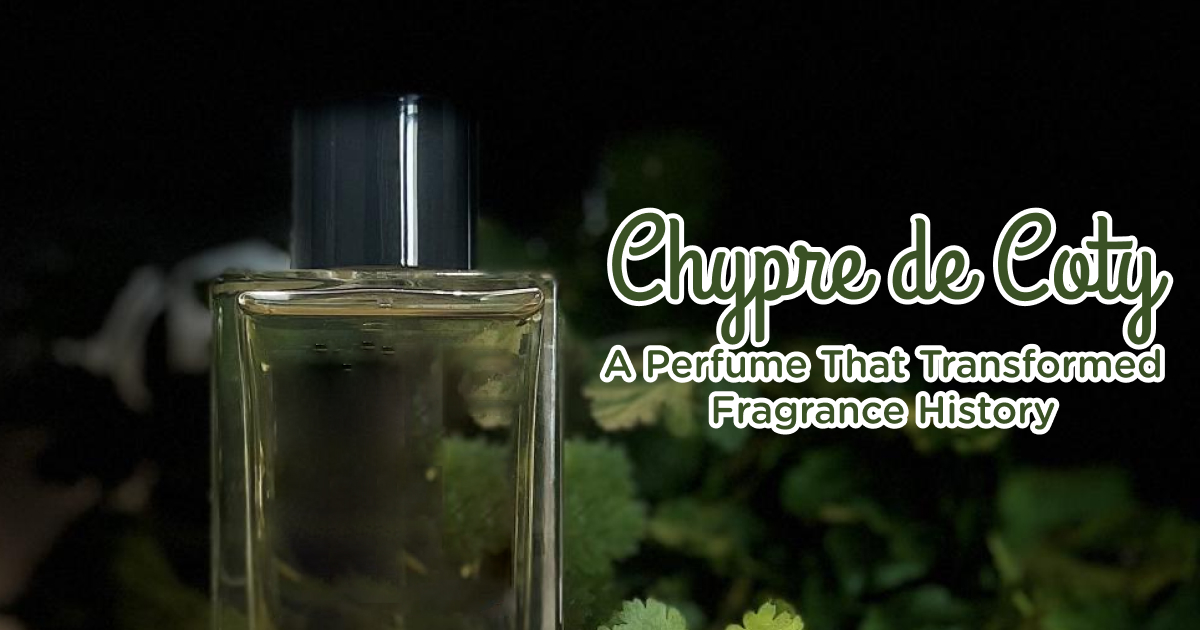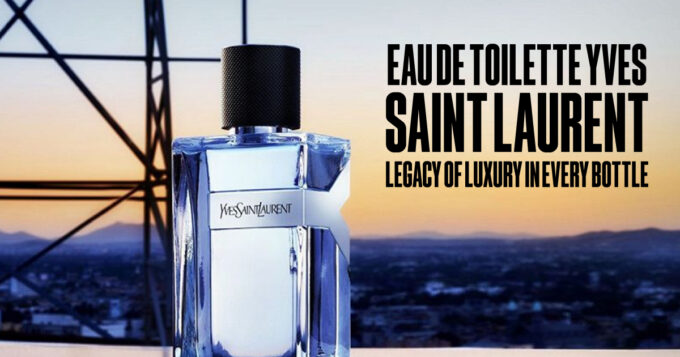Chypre de Coty is one of the most renowned fragrances in the world of perfumery. Launched in 1917 by the brilliant French perfumer François Coty, this perfume not only paved the path for a whole fragrance family, but also transformed the perfume business by mixing rich, powerful fragrances in a unique and timeless manner.
The launch of Chypre de Coty heralded the beginning of the chypre fragrance family, which continues to impact the world of perfumery more than a century later. In this blog post, we will look at Chypre de Coty’s history, composition, and long-term impact, as well as why it is still considered one of the most significant scent creations in history.
The visionary behind the scent: François Coty
François Coty, a perfumer born in 1874, had a revolutionary idea. His approach to perfume creation was both artistic and scientific, and he had a strong sense of what would appeal to the modern lady of the early twentieth century. Coty believed in the power of aroma to elicit emotions and memories, and he was one of the first perfumers to make high-end perfumes broadly available to consumers.
Coty’s designs were driven by a desire to break free from the time’s customary perfume formulations. His goal was to create something completely unique by combining natural and synthetic elements to create bold, complex perfumes.
With Chypre de Coty, he not only succeeded but also established a new industry standard. What is a chypre perfume? It is characterized by a specific fragrance structure that typically includes citrus top notes, a heart of floral notes, and a base of moss, woods, and patchouli. This innovative approach to perfumery revolutionized the industry and influenced countless fragrances that followed.
Birth of Chypre de Coty
The name “Chypre” translates to “Cyprus” in French, and the scent was inspired by the Mediterranean island’s lovely landscapes. François Coty aimed to recreate the character of the island, specifically its earthy, mossy, and woody smells combined with the freshness of citrus.
Chypre de Coty was introduced in 1917, during a period when strong, single-note floral perfumes were popular. Coty, on the other hand, envisioned something different: a daring and multi-layered fragrance that combined opposing components to produce a balanced and harmonious aroma. This innovative formulation immediately acquired appeal, becoming a distinctive fragrance for many ladies in the early twentieth century.
The composition is a balance of contrasts.
Chypre de Coty’s unusual composition combines bright citrus top notes with a deep, earthy base. The chypre fragrance family is defined by its blend of opposing components.
Here is a breakdown of the composition.
Chypre de Coty opens with the freshness of bergamot, providing a bright and zesty beginning to the fragrance. This zesty accord provides a sensation of freshness and lightness that contrasts with the darker notes that follow. Chypre perfumes 2019 have seen a resurgence in popularity, as perfumers creatively blend traditional elements with modern twists, showcasing the versatility and timeless appeal of the chypre family.
Heart Notes: As the fragrance’s brilliance fades, floral notes such as jasmine and rose take center stage. These blossoms provide delicacy and softness, forming a harmonious bridge between the zesty top and the earthy base.
Base Notes: Chypre de Coty’s heart is its rich, woody base. The fragrance’s base is dominated by oakmoss, which adds a dry, earthy note. This is mixed with patchouli, labdanum, and musk to give the fragrance a rich, resinous depth. Chypre’s base notes are responsible for its long-lasting power and complexity, which linger on the skin long after application.
This distinct blend, with its crisp, lemony beginning and warm, mossy finish, was unlike anything else at the time. It struck a balance between light and dark, fresh and earthy, masculine and feminine, making it appealing to a diverse group of people.
The Legacy of Chypre de Coty.
Chypre de Coty was more than just a perfume; it marked the beginning of the chypre fragrance family, which has since become one of perfumery’s most prominent categories. The term “chypre” currently refers to any fragrance with a fundamental structure of citrus, flowery, and mossy ingredients, and many legendary perfumes have followed suit.
Chypre de Coty is responsible for the creation of several well-known chypre perfumes, including:
- Mitsouko by Guerlain (1919).
- Miss Dior, by Christian Dior (1947).
- Clinique released Aromatics Elixir in 1971.
- Coco Mademoiselle by Chanel (2001)
Chypre de Coty’s influence may still be felt in modern perfumery, where contemporary manufacturers continue to explore and reinterpret the chypre structure. Although the original formulation of Chypre de Coty has been discontinued, its impact remains unmistakable.
Why Chypre de Coty stands the test of time
Several things contribute to the long-lasting legacy of Chypre de Coty:
Coty’s combination of synthetic and natural elements resulted in a powerful and unusual composition that stood out in an era dominated by conventional floral perfumes. Its innovative design contributed to the development of modern fragrance.
Versatility: The chypre structure has inherent versatility. Its combination of citrus freshness and earthy depth makes it appropriate for both men and women, and it may be worn in a variety of contexts and seasons.
Timelessness: The tones of Chypre de Coty form a universal chord. The fragrance exudes sophistication, luxury, and elegance, appealing to people of all ages.
Chypre de Coty emerged as a symbol of modernism and luxury in the early twentieth century. Its popularity cemented François Coty’s position as a great perfumer, and its legacy continues to define the fragrance business today.
Conclusion: A Perfume That Changed the World.
Chypre de Coty is more than just a fragrance; it represents a watershed moment in perfumery history. François Coty’s audacious blend of bright citrus, lush florals, and earthy moss transformed perfumery and established a new industry standard.
Today, Chypre de Coty’s legacy lives on in the numerous chypre scents that decorate perfume aisles throughout the world. Its ageless structure, original formulation, and long-lasting impact assure that it will always have a unique place in the world of scent.
For people in Bahrain or elsewhere wishing to learn about fragrance history, Chypre de Coty is a reminder of how a single perfume may forever alter our perception of scent.













